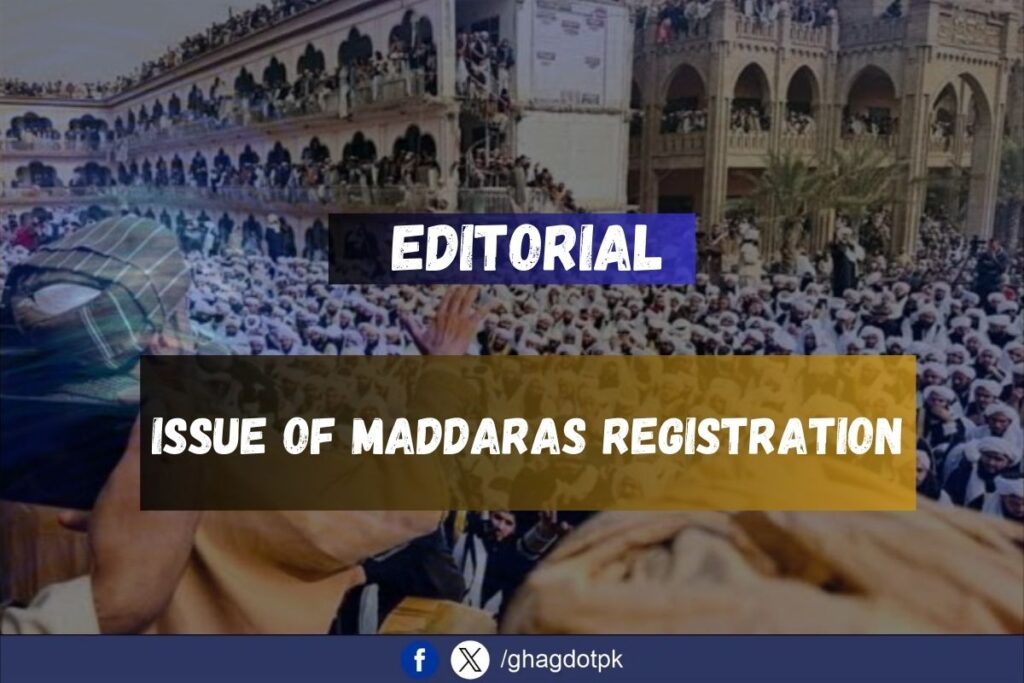The country is once again debating the registration of religious institutions, and some groups, such as the JUI-F, are against the state or government’s suggestions to reform the seminaries that are affiliated with religious institutions from other nations. Maulana Fazlur Rehman and a few other leaders have consistently worked to prevent madrassas from being properly registered or having an audit system for them, and from teaching modern or contemporary subjects at madrassas. This criticism stems from the fact that 80 percent of madrassas are either affiliated with various religious parties or have ideological affiliations. According to one perspective, these madrasas are the focal points of these religious organizations. Additionally, they provide funding. During various phases of the Cold War, numerous Islamic nations made significant expenditures in Pakistan and Afghanistan to support madrassas and other Islamic parties and organizations to increase their influence in this crucial area. These countries include Saudi Arabia, Iran, the UAE, Qatar, Turkey, Libya, Syria and Iraq. When Pakistan became independent, the total number of madrassas in both parts of the country – West and East Pakistan – was about 5,000. In 1978, this number reached 9,000, but soon after the changes in Iran and Afghanistan, the number of madrassas in these two countries began to increase exponentially and reached 20,000 by 1984. In this background, often by creating jihadi elements in the madrassas, the process of sending students to do jihad in Afghanistan and Kashmir etc. was started, as a result of which these madrassas not only became very important for some religious parties and many important countries, but these madrassas also became a regular business. According to a survey conducted in 2010, the number of registered and unregistered madrassas in Pakistan was estimated at more than 60,000.
Since the nation lacks an efficient system for registering madrassas, information on their audit, curriculum, and other operations cannot be made public. Following the APS tragedy, religious groups began to oppose the registration and reform of madrassas by the National Action Plan’s decisions. Despite state coordination and consultation, Maulana Fazlur Rehman Sahib was the most significant figure in this opposition because the majority of madrassas in Pakistan are Deobandi in nature, and Maulana Fazlur Rehman is regarded as the largest plaintiff of this school of thought. During the PTI central government, it was decided that the responsibility of looking after the affairs of the madrassas should be under the Federal Ministry of Education and a lot of efforts were made to create a consensus on this but the process of reform could not move forward. Now once again pressure is mounting on the state of Pakistan to ensure property registration and reform of madrassas to deal with the issue of extremism, but Maulana Fazlur Rehman and many others have again started to oppose. In the background of the 26th Constitutional Amendment, efforts are being made to resolve the issue and Maulana and others are being taken into confidence at the level of the Prime Minister in this regard, but it does not seem to be happening, which is increasing the fear of negative effects. Because some international institutions, especially the FATF, are beginning to exert pressure again, state institutions have no choice but to meet certain conditions. Therefore, all stakeholders, including Maulana Fazlur Rehman, will have to cooperate with the state institutions while reviewing the ongoing situation so that the mainstreaming of madrassas can be done through consultation and national consensus and its registration process can be made possible through a modern system.






